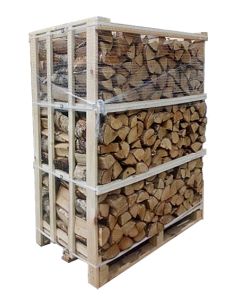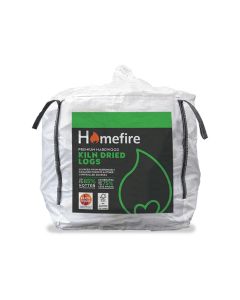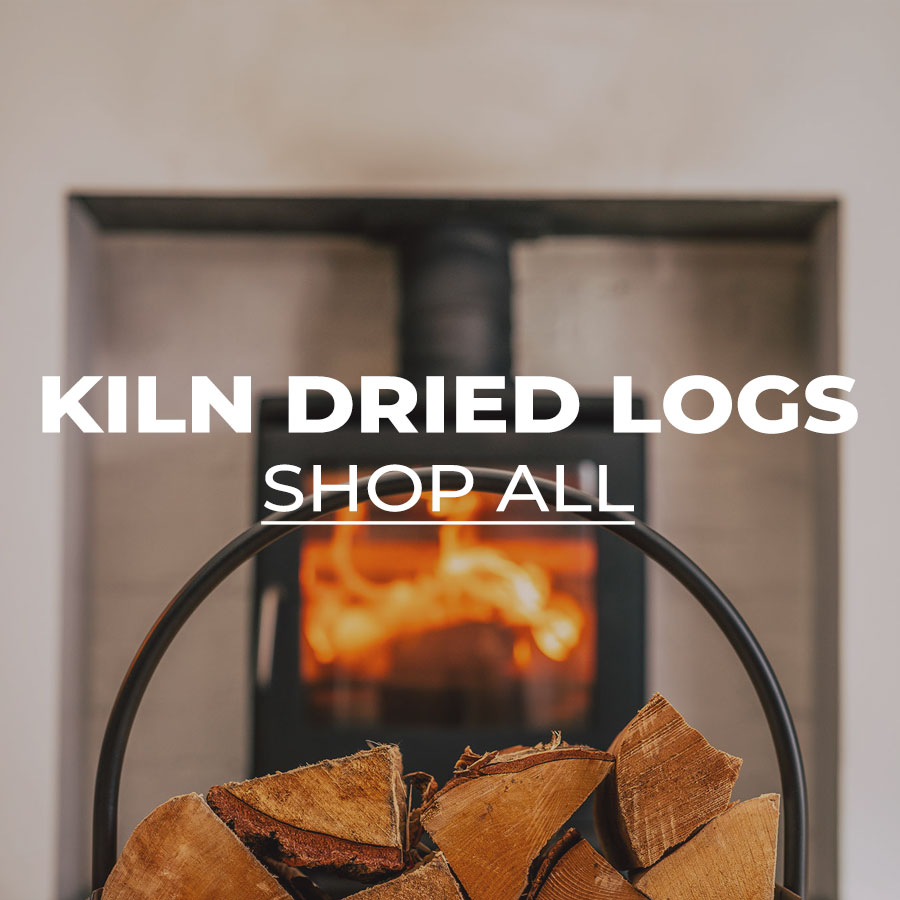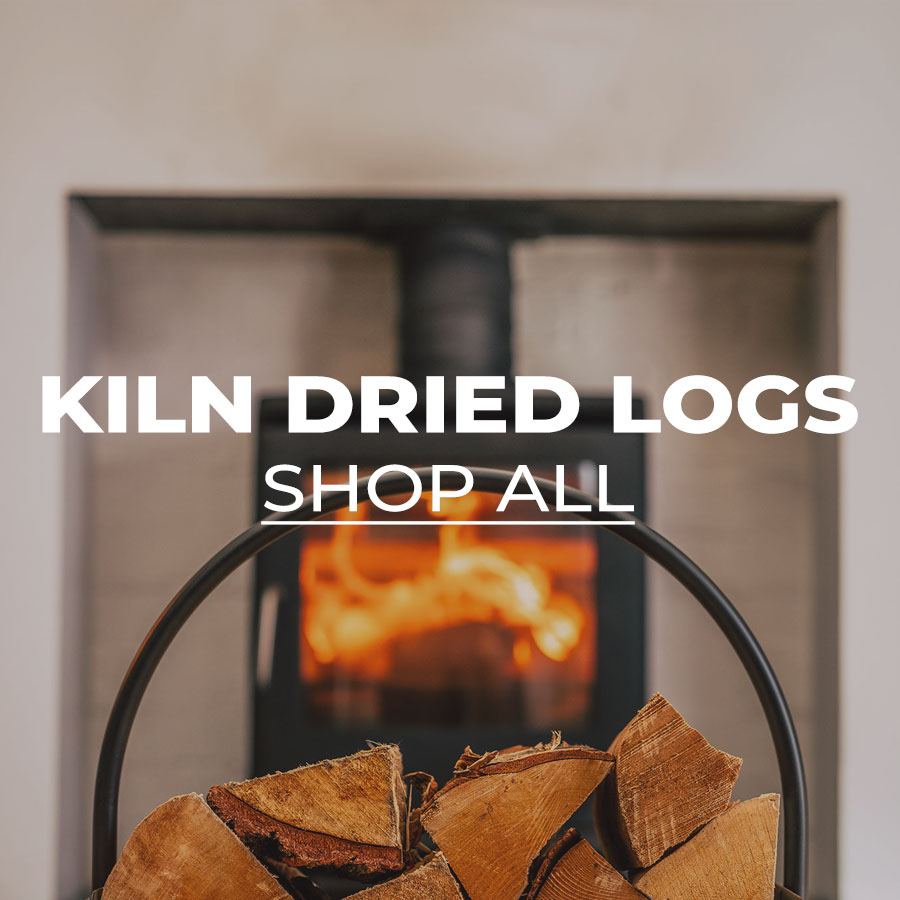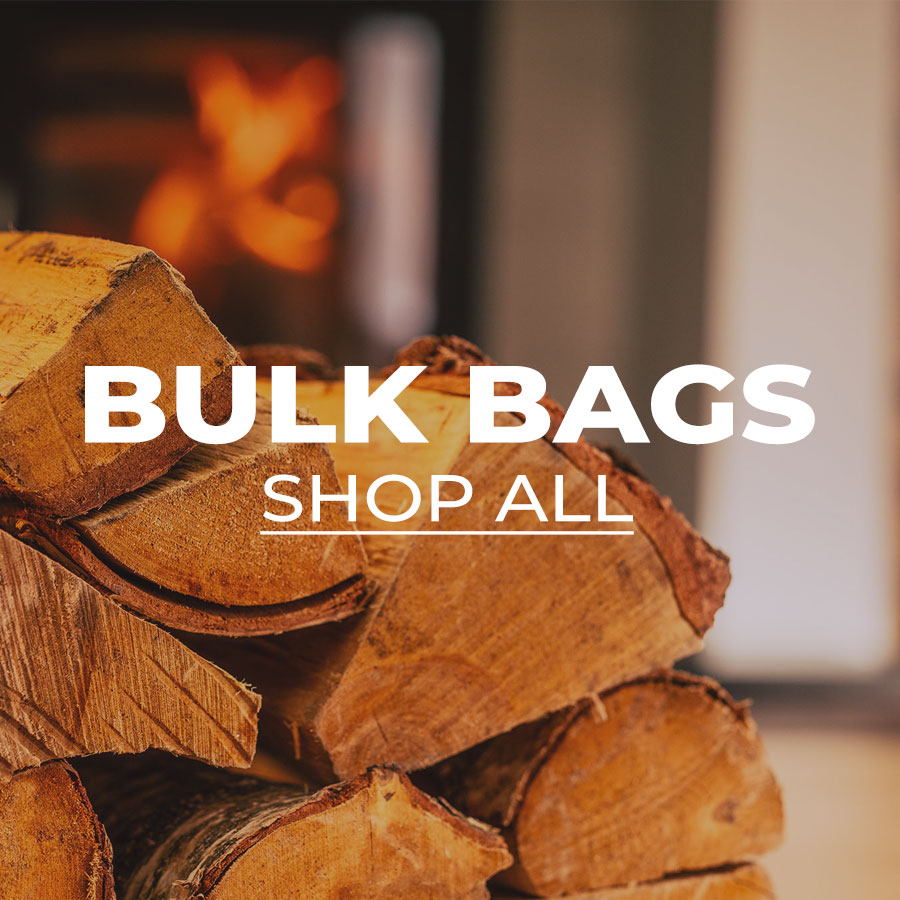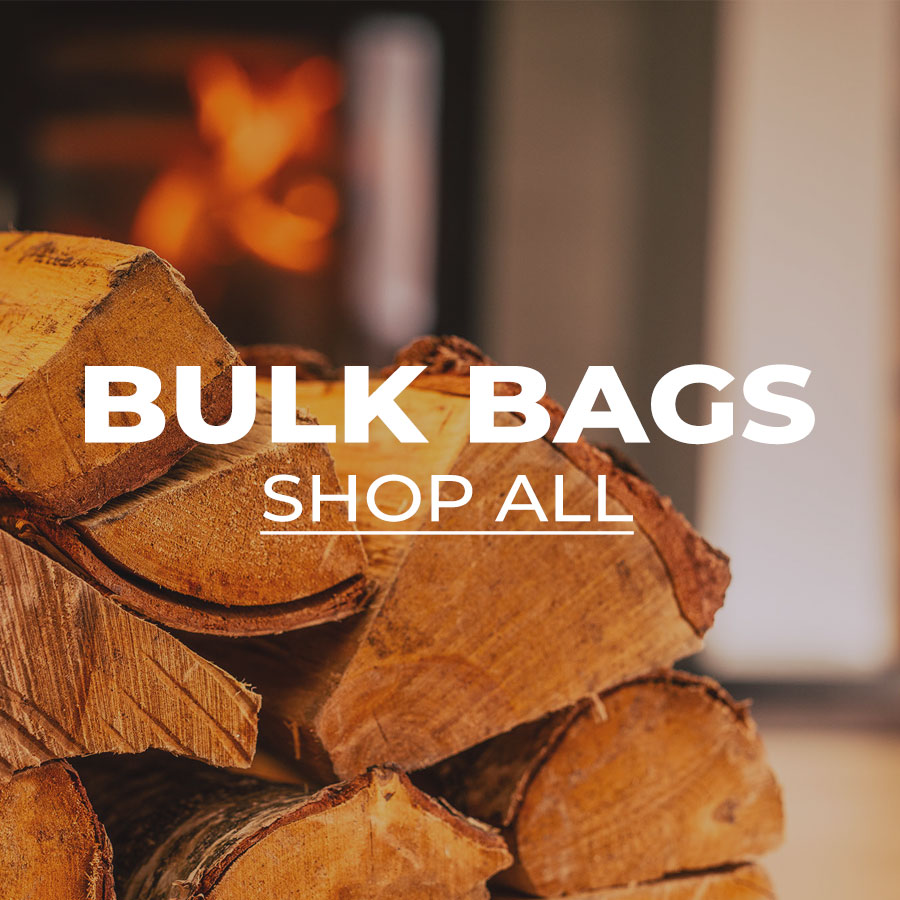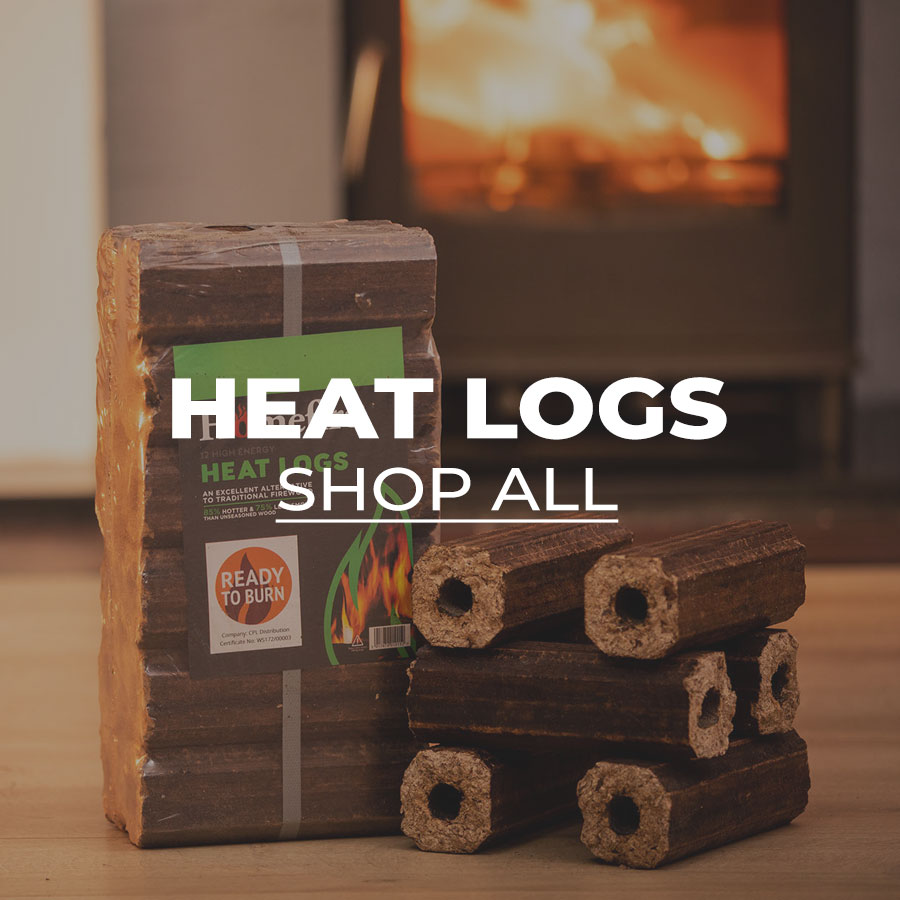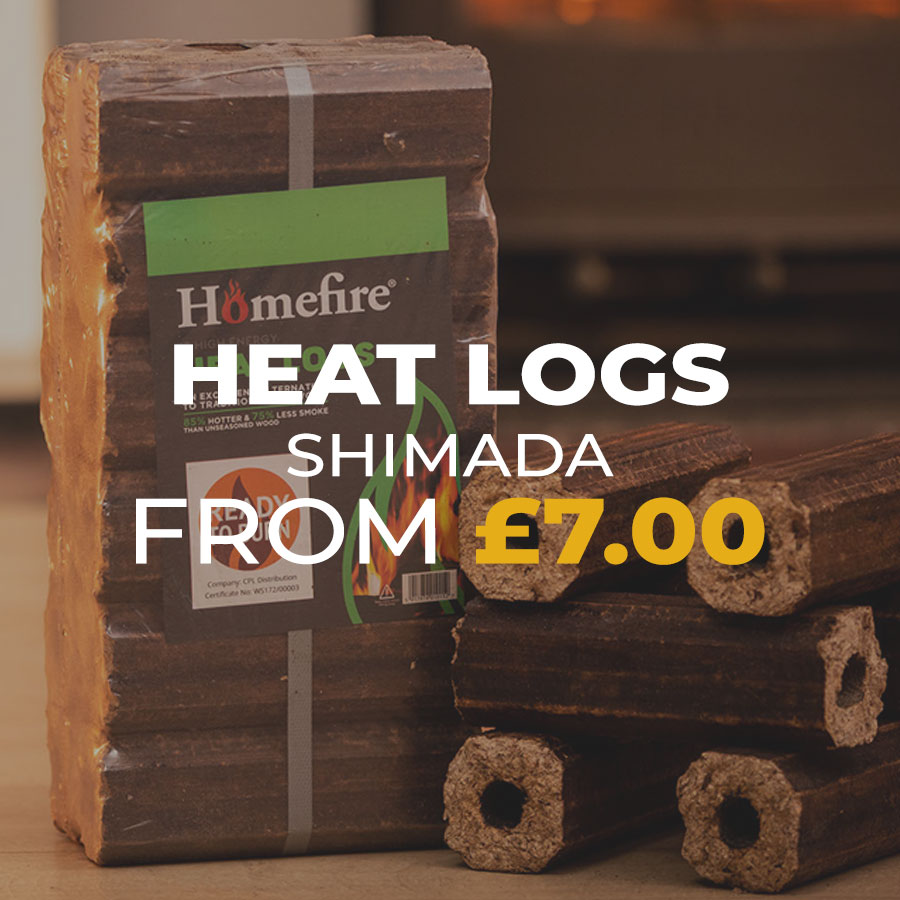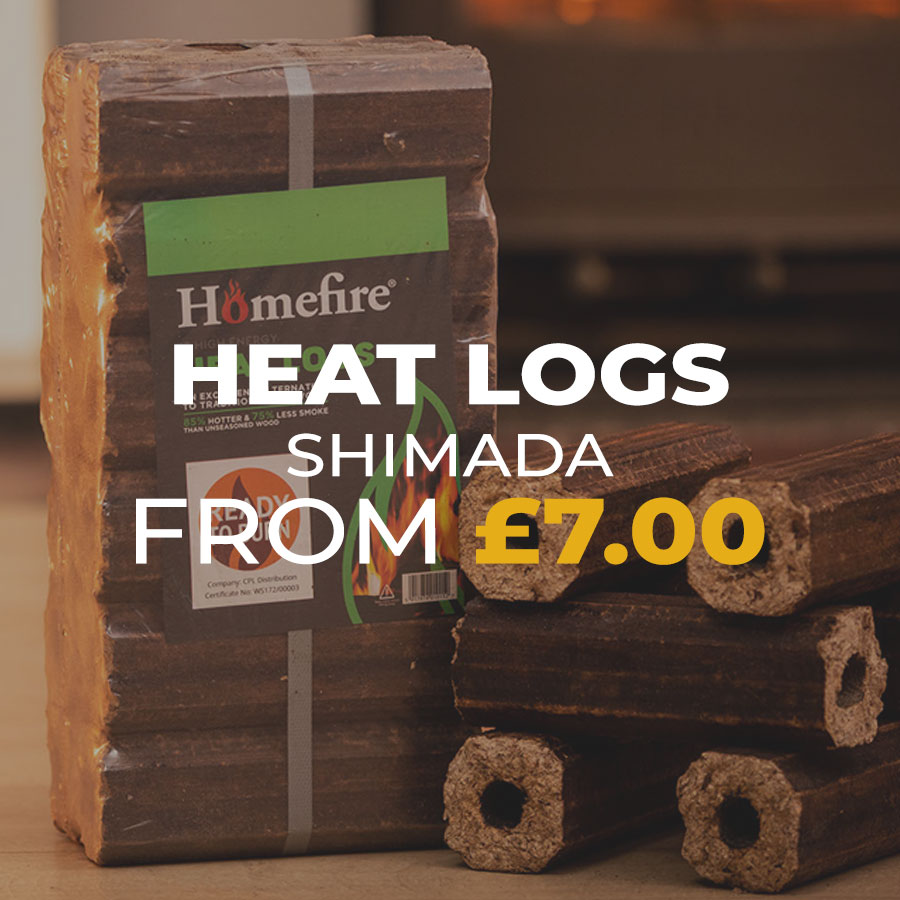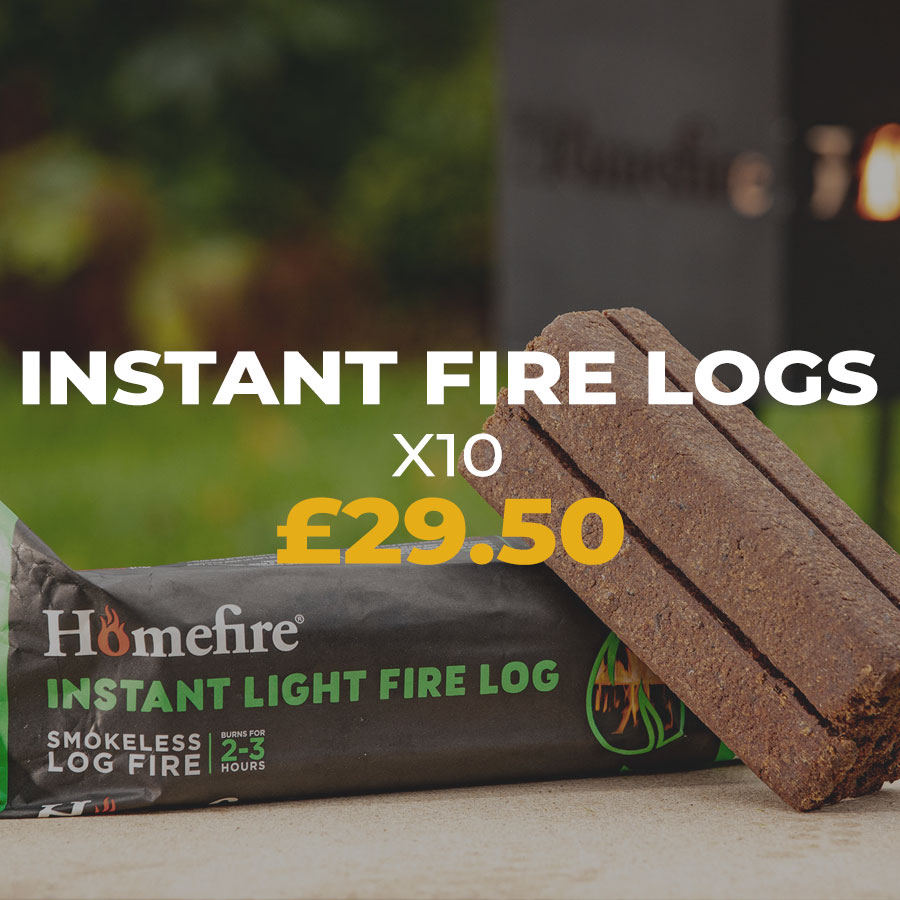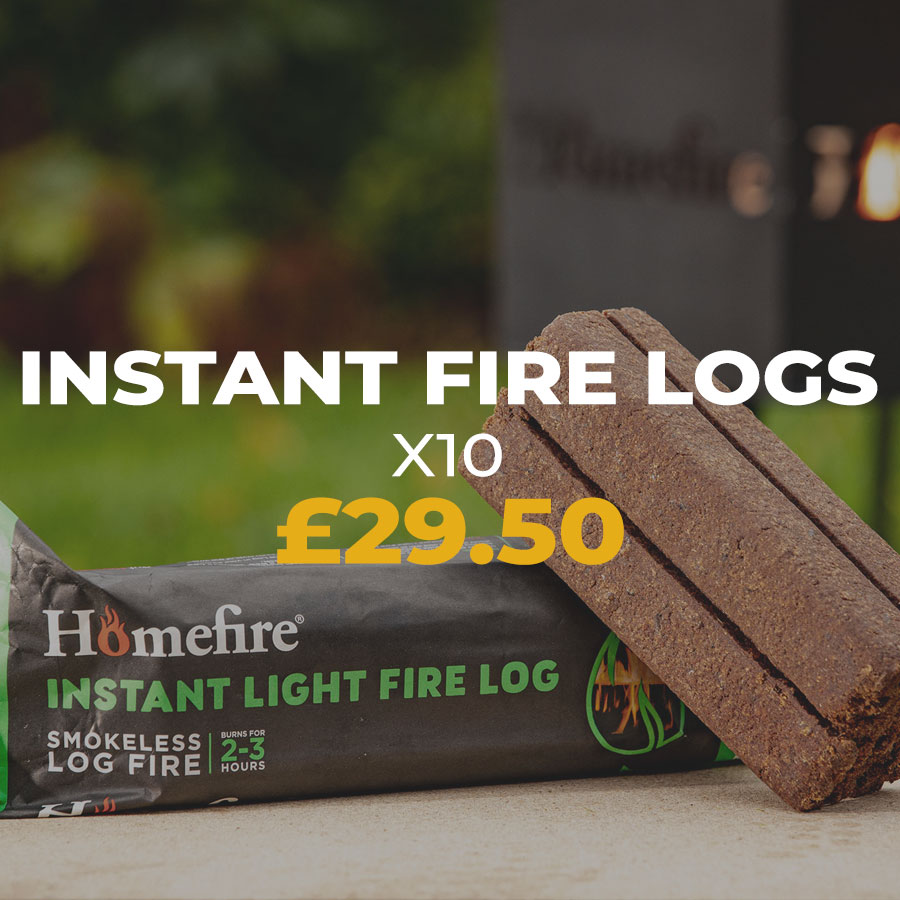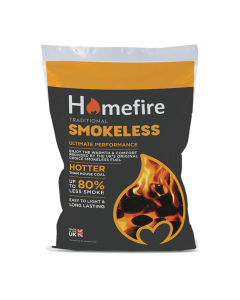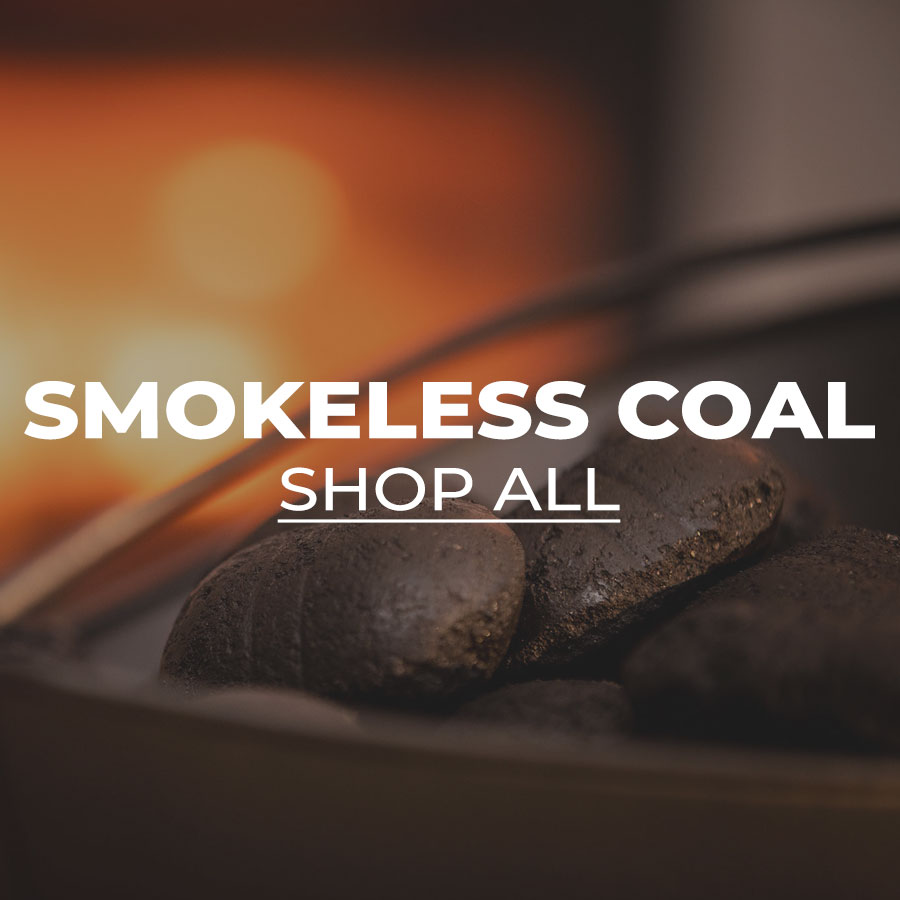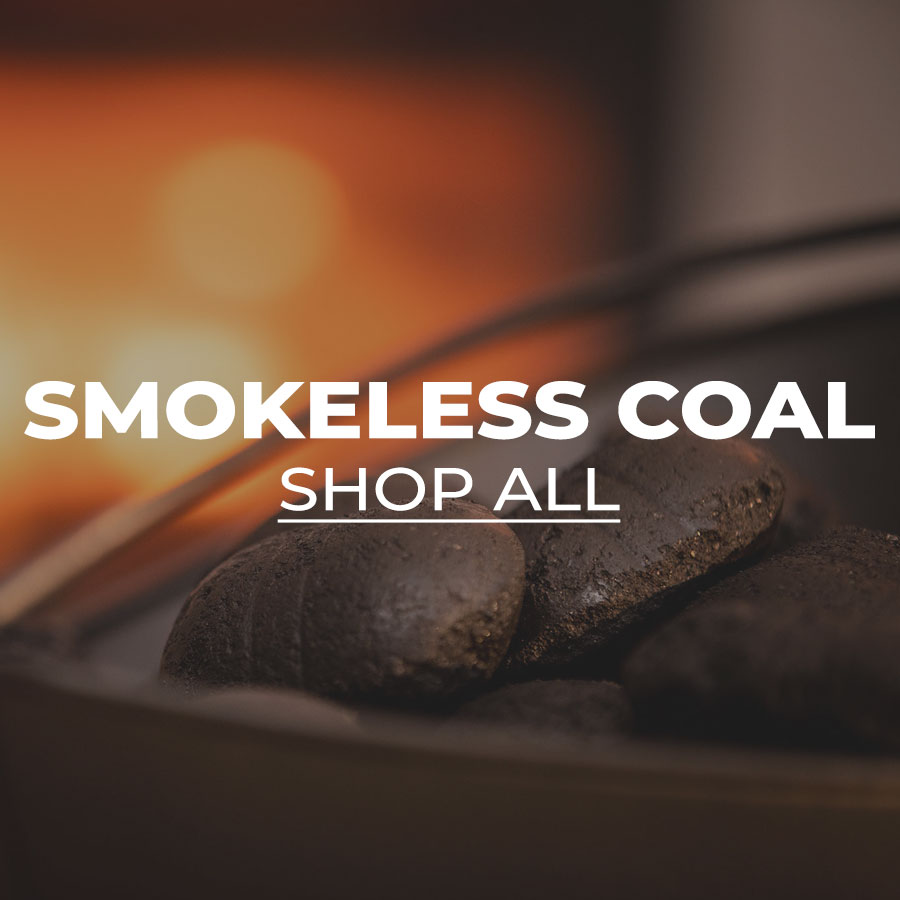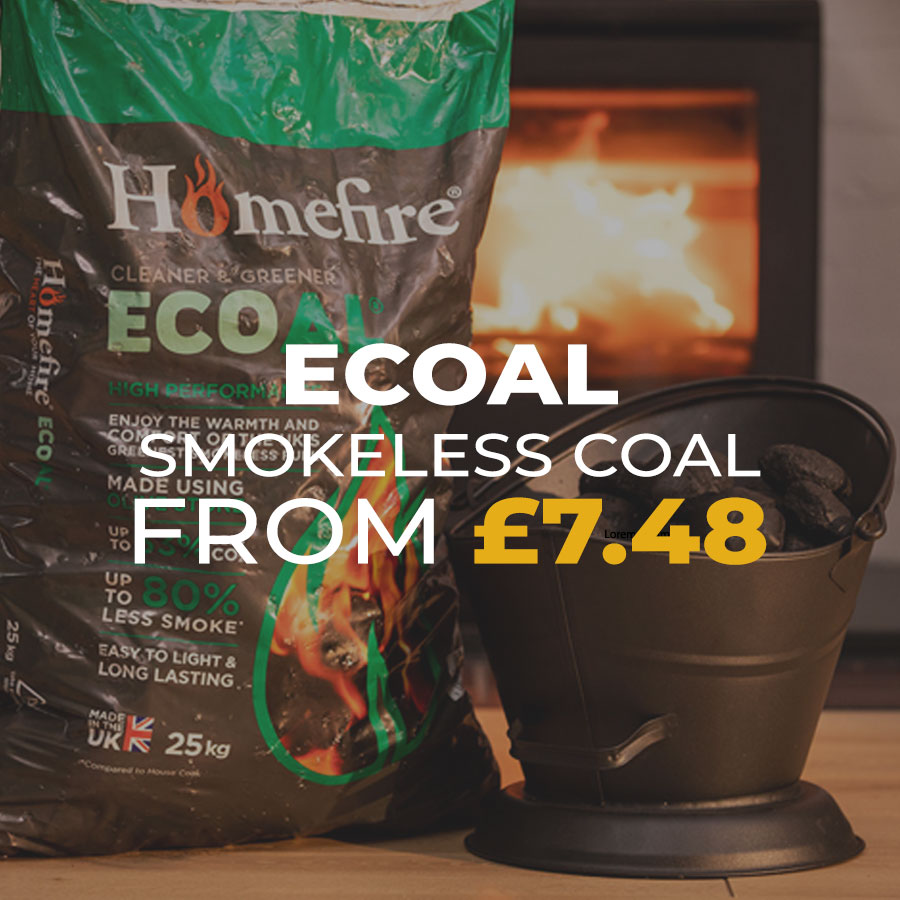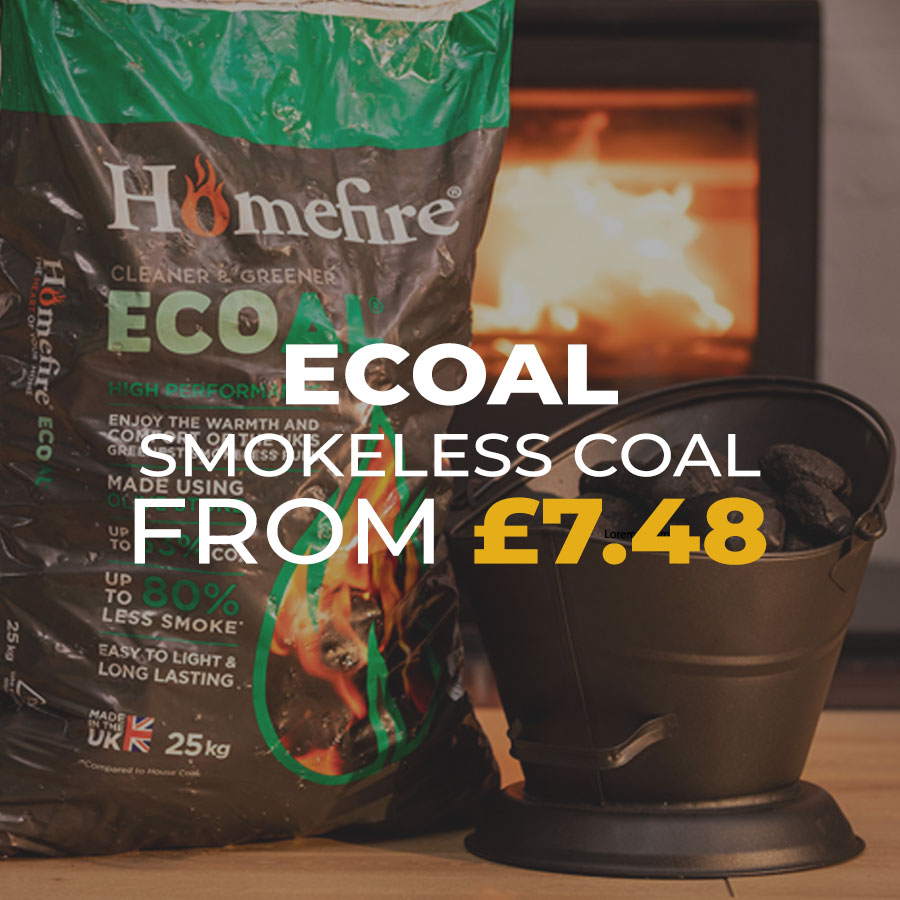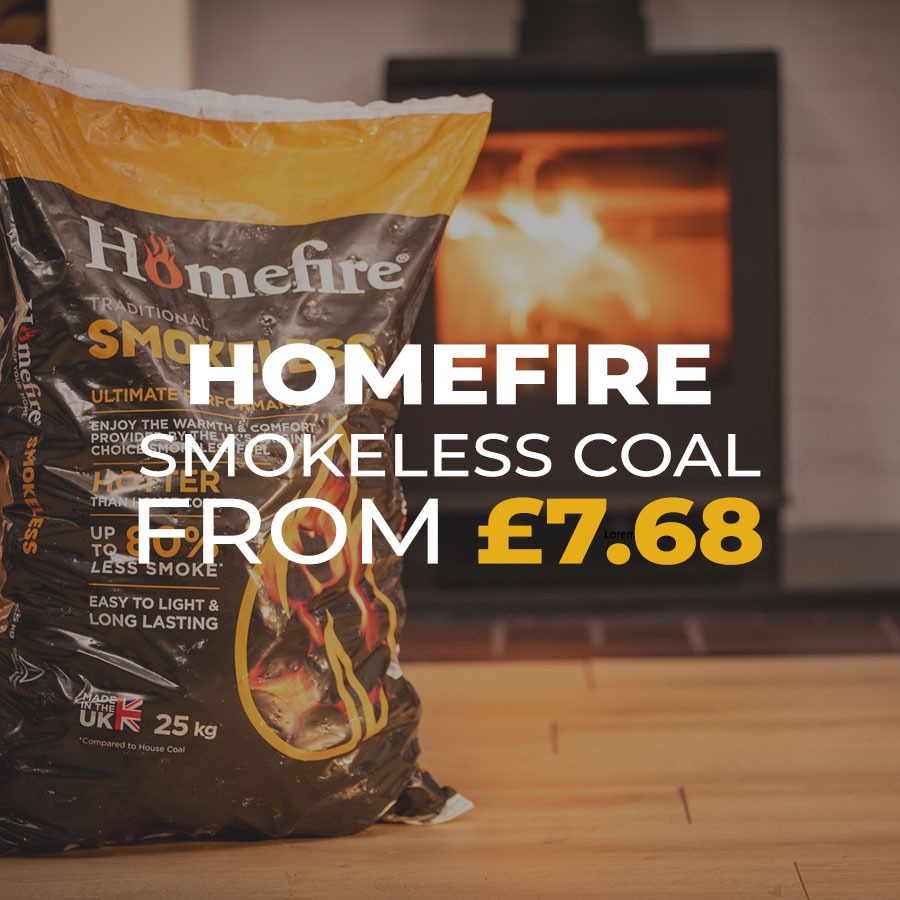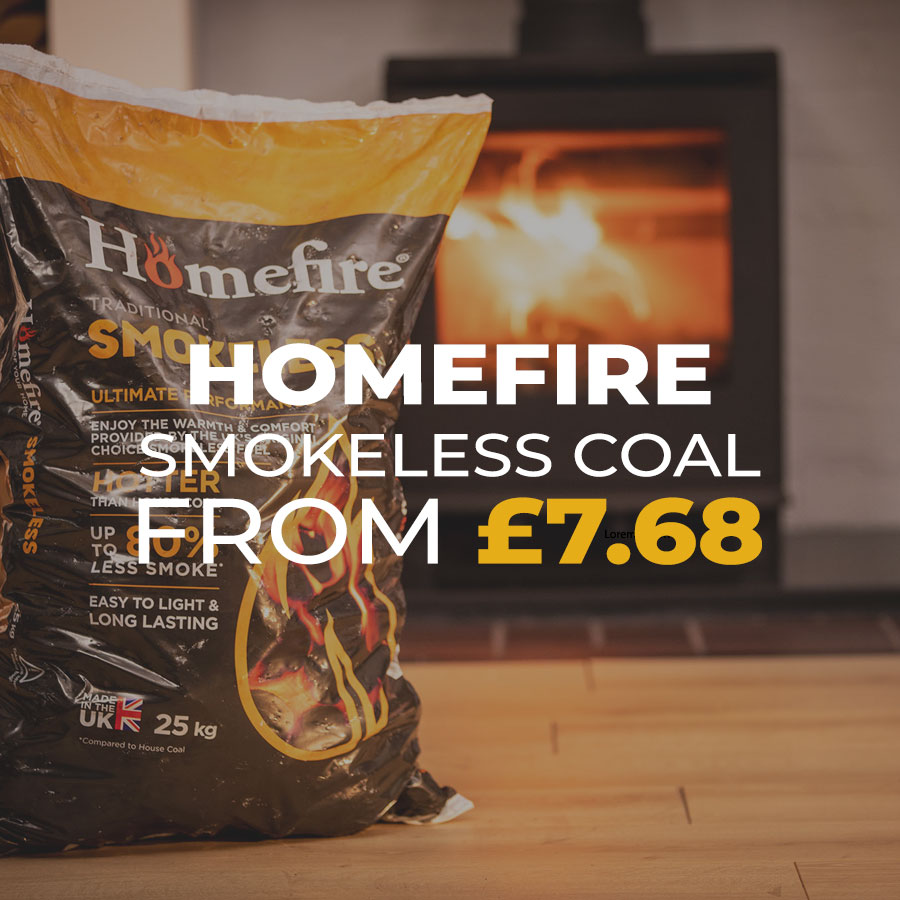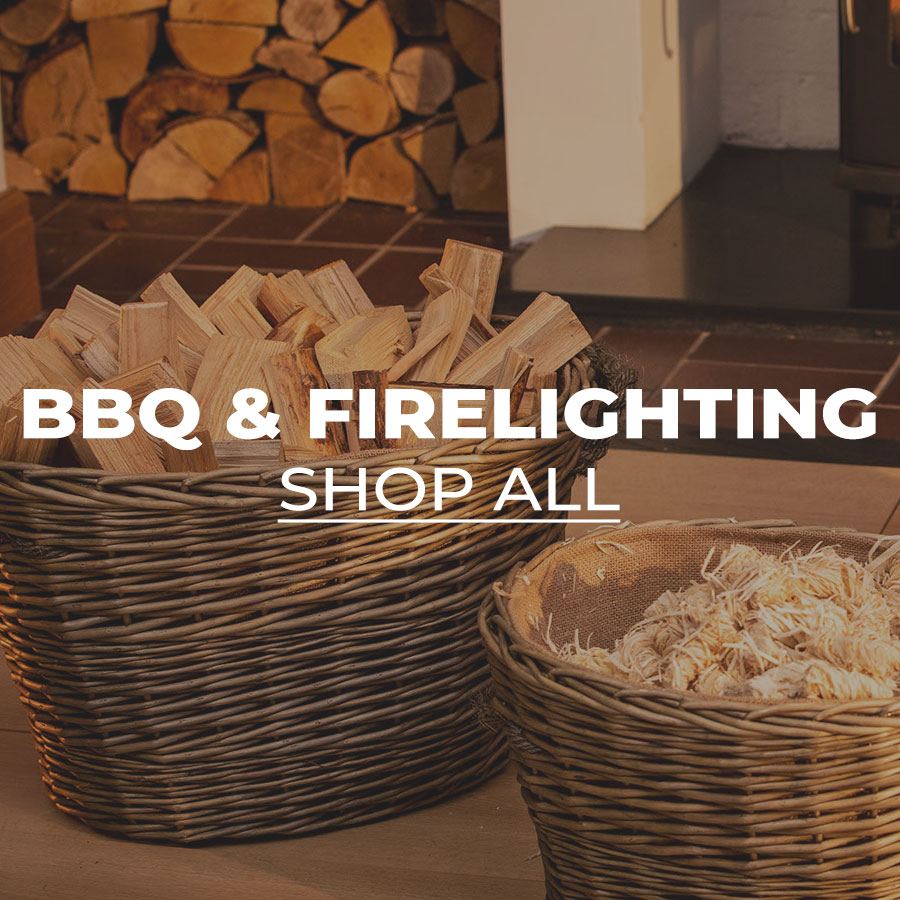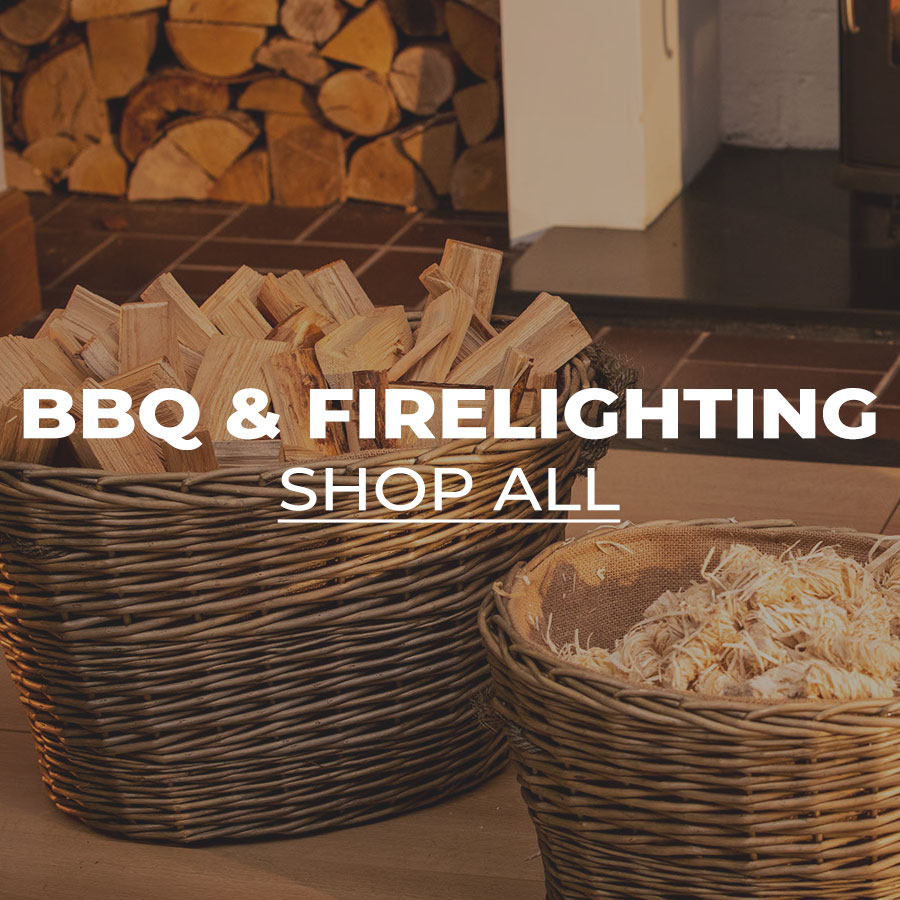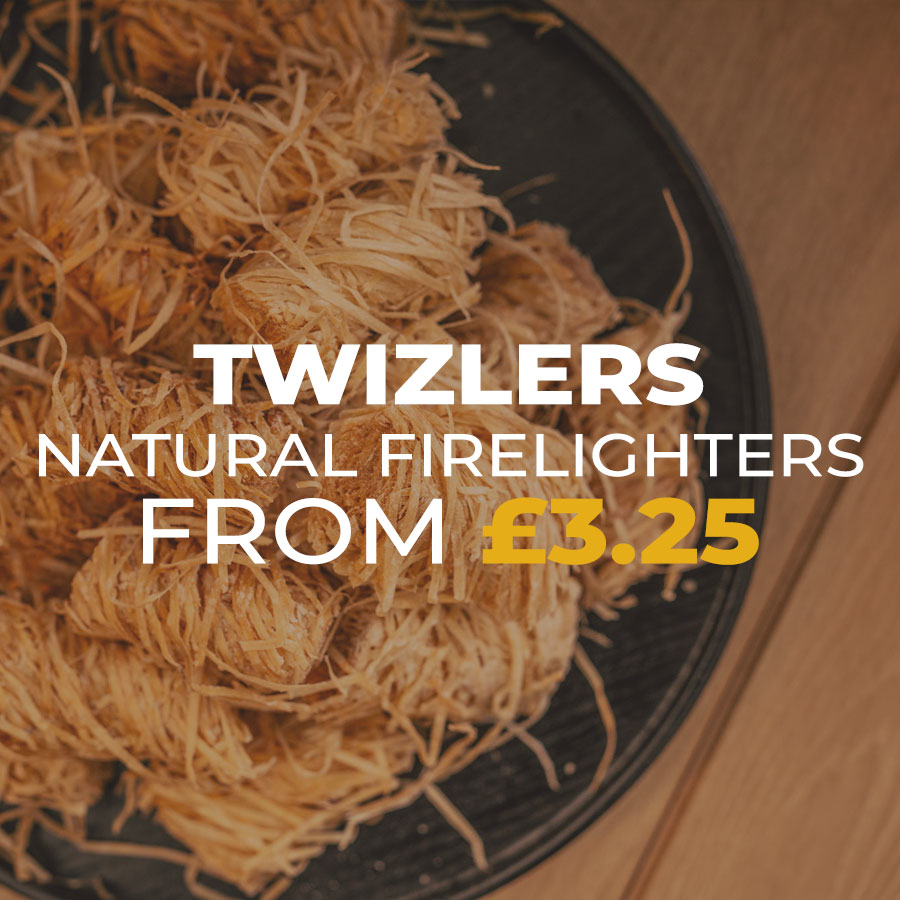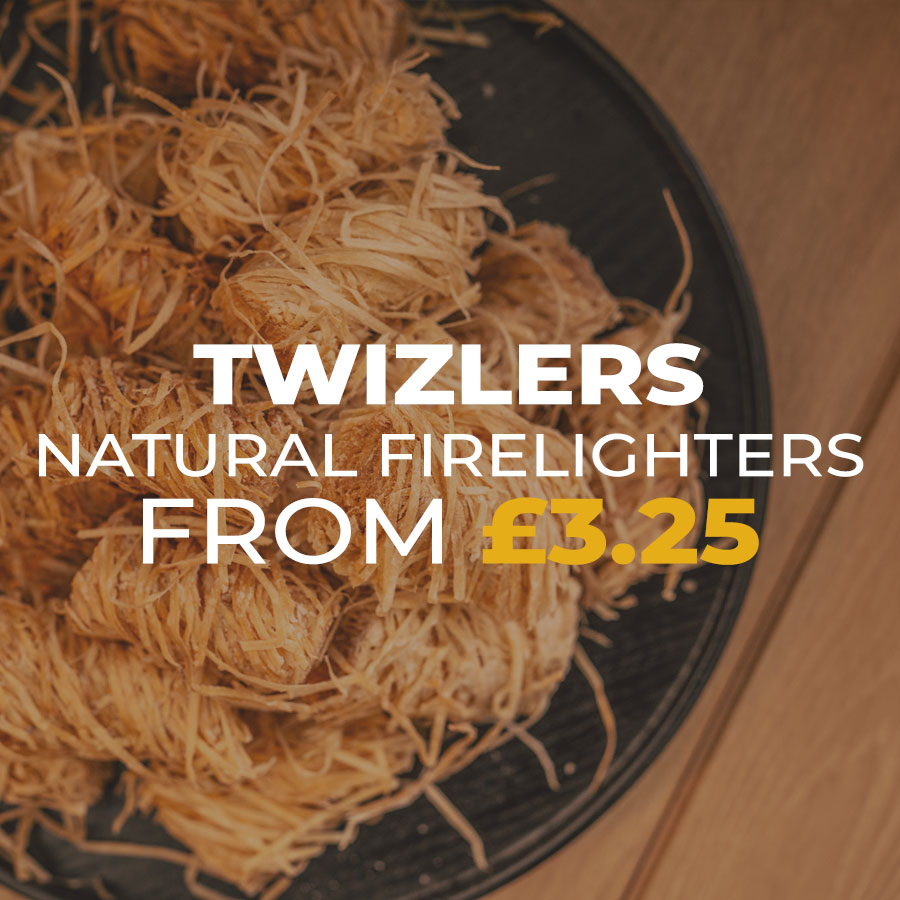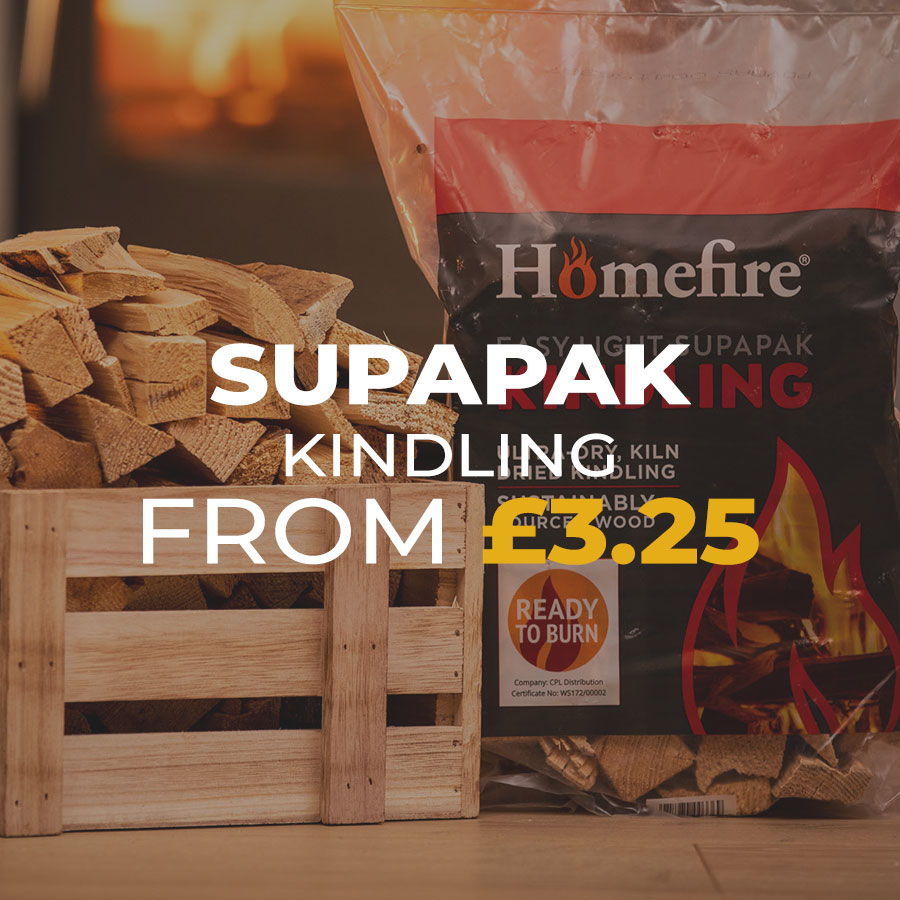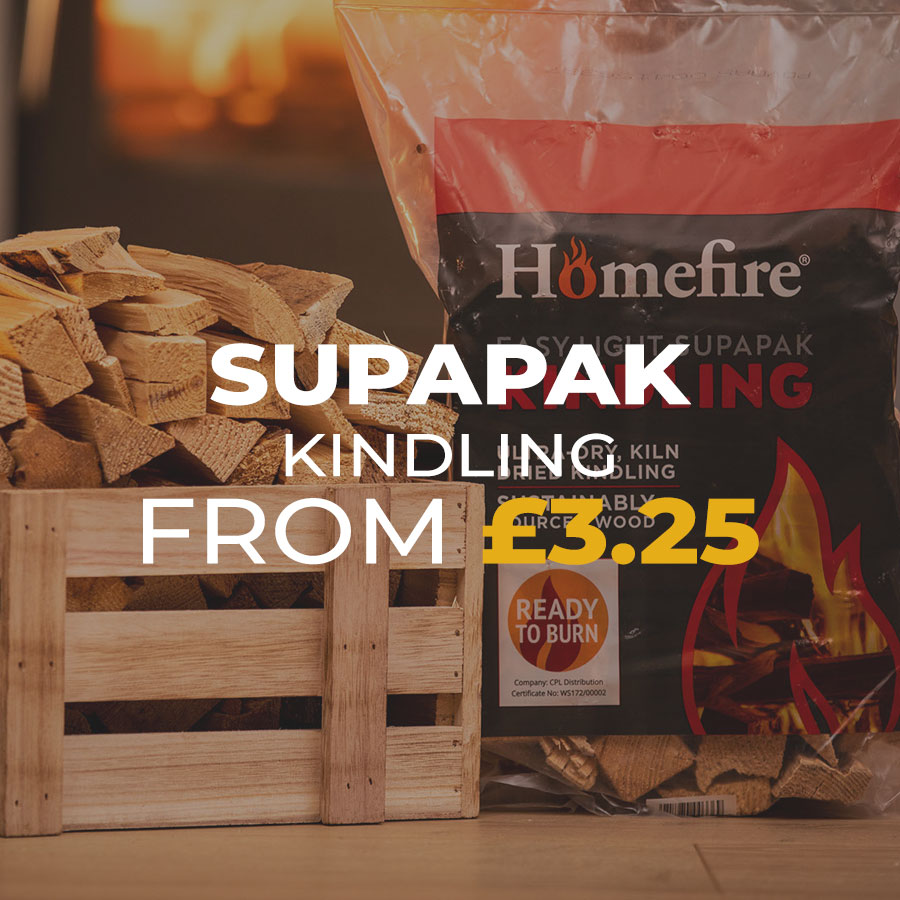All you need to know about burning firewood
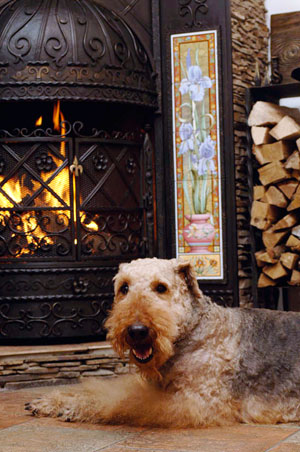
- Kiln dried logs are the highest quality logs available - less than 20% moisture content
- Dry Wood Good: Wet Wood Bad - For multiple different reasons: it gives a rubbish fire, emits lots more smoke and clogs up your chimney with tar increasing the risk of chimney fires. All these problems go away when you use dry wood
- Dry wood is when it has a moisture content of less than 20%
- Burning logs and smokeless coal together can be beneficial to your appliance
- Much of our wood fuel is sourced from sustainable FSC® certified UK woodlands
- Only burning dry wood will minimise the risk of damage to your appliance
Kiln Dried Logs
Homefire's Kiln Dried Logs are Ready to Burn which means they are dried to an average of less than 20% so they are ready to use immediately, perform extremely well, and are very efficient. Some of the highest quality logs available, Kiln Dried Logs burn much hotter than regular seasoned logs or wet logs. This higher temperature makes kiln-dried wood considerably more efficient and economical to burn, as well as helping to prolong the life of your appliance. Any sap or water remaining in the wood is burnt off, preventing it from building up inside your appliance as tar.
- Ready to Burn - Less than 20% moisture
- High heat output, low smoke
- Ideal for use on wood burners, multi-fuel stoves, and cookers
- Protects the warranty of your appliance
- FSC® certified logs from responsibly managed woodlands where trees are replaced or allowed to regenerate naturally
Find out more about the Ready to Burn scheme via our Knowledge Base or read this article by consumer magazine Which.
Heat Logs
- Manufactured from pure wood waste
- Low moisture content
- Ready to burn immediately
- Ideal for use on multi-fuel stoves, open fires, wood burners, and chimeneas
Heat logs, or fire logs, are manufactured logs which can be burnt immediately. They can be burnt alone, or used as an aid in starting a fire. Our heat logs are made from recycled wood waste, so they’re also better for the environment.
Seasoned Logs
- Contain less than 30% moisture
- Ready for use in 1-2 weeks
- Good heat output
- Ideal for use on multi-fuel stoves, open fires, wood burners, chimeneas, and braziers
- Seasoned wood burns with medium heat output. We recommend that seasoned logs be allowed a drying time of several weeks before being burnt.
Unseasoned Logs
- Contain between 45% and 60% moisture
- Ready for use in 6-12 months
- Low-medium heat output
- Ideal for DIY seasoning
Unseasoned wood provides a low-cost option which is best suited to open fires. Hardwood and softwood netted logs have a moisture content that is typically between 45% and 60%, so we recommend that they be allowed adequate time to dry or season prior to burning.
Fire and Chimney Safety
Potential dangers from burning wet wood
Burning wet firewood can result in two very serious problems associated with condensation in the chimney.
Blockages and chimney fires
Water vapour combines with other gases and particles going up the chimney and unless the chimney is kept warm, the condensation forms a creosote-like substance which hardens to form tar on the surface of chimney liners and may seep into brickwork in an unlined chimney. Wet wood causes the chimney to cool and so condensation occurs and a residue is formed.
The residue is brown or black and can be flaky, sticky, runny, tar-like or hardened and will sometimes be all of these in the same flue. The chimney may become completely blocked or the volatile residue can ignite causing a dangerous chimney fire.
Corrosion
The excessive condensation from wet wood which normally forms in the upper part of the chimney is acidic in nature and will corrode the inner surface of a metal liner, eventually leading to perforation and failure of the liner.
Keep your Chimney Clean
Having your chimney swept regularly will help your fuel burn more efficiently, and minimise any risk of damage to your appliance or chimney. The following frequencies are the minimum recommended by the Guild of Master Chimney Sweeps. Your chimney sweep will be able to better advise the correct sweeping frequency for your situation.
- Smokeless Coal – At least once per year
- Wood – Up to four times per year
- Bituminous Coal – Twice per year
Visit the Guild of Master Chimney Sweeps, NACS, or APICS to find a reputable, reliable sweep near you.
Fit Smoke and Carbon Monoxide Alarms
Smoke and Carbon Monoxide detectors should be fitted in every home, whether the owners burn solid fuel or not. An audible alarm will alert you to any danger wherever you are in the house. Carbon Monoxide is a colourless, odourless, and tasteless gas which can be fatal if inhaled in large quantities. A carbon Monoxide alarm is a reliable way of detecting carbon monoxide before it reaches dangerous levels.
Fire and Chimney Safety Tips
- Don’t store wood or other flammable materials next to your fire or stove
- Try to use wood that is dried to 20% moisture or less
- Don’t leave open fires unattended
- Use a fire guard when necessary
- Have your chimney swept regularly
- Use audible smoke and carbon monoxide detectors
Hardwood versus softwood
For the majority of fuel burners, hardwood logs would be the best choice. This is because they are much denser than softwood and therefore produce higher heat. Due to these higher temperatures, you’ll also need fewer hardwood logs in order to heat your home, meaning longer refuelling intervals. However, softwood tends to light more easily than hardwood and burns faster due to its resin content. It gives more immediate heat so is ideal for kindling and initial burning.
Which hardwood? Ash, Birch or Oak
When it comes to finding the best wood to burn on your open fire or multi-fuel stove, there’s plenty to choose from, each with its own burning qualities. But hardwoods are generally denser than softwood and therefore burn for longer and we’d particularly recommend Ash, Birch and Oak which all have a lengthy burn time due to their greater density.
Here’s a rundown of each wood’s burning qualities.
Ash
Reckoned by many to be one of best woods for burning, it produces a steady flame and good heat output. It can be burnt when green but like all woods, it burns best when dry.
One of the best woods for a steady fire and good heat. Although ash will burn when green, it burns better when seasoned. Ash wood produces excellent heat, a nice flame and it lasts reasonably well.
Birch
Produces good heat output but it does burn quickly. It can be burnt unseasoned, however the sap can cause deposits to form in the flue with prolonged use.
These logs burn quickly but nevertheless provide good heat output, bright lively flames and a pleasing smell. Best mixed with other slower burning logs such as Elm (particularly slow burning), Ash or Oak.
Oak
Because of its density, oak produces a small flame and very slow burn, it is best when seasoned for a minimum of two years as it is a wood that requires time to season well.
Generally considered one of the very best wood fuel logs and therefore much sought after. However it must be seasoned for a long time – at least two years. It burns fairly slowly with nice flames and produces an excellent long lasting heat even when only the embers are left.
Environmentally Friendlier Wood Fuel
We work hard to ensure that all of our firewood is responsibly sourced, ensuring that future generations can also enjoy the comfort of a real log fire without harming the environment.
Ready to Burn
Ready to Burn is a Government backed initiative designed to encourage users to only burn firewood dried to less than 20% moisture content. This is because dry wood emits much less smoke than wet wood. From the Government's perspective Ready to Burn is about improving air quality, but for the user they also benefit from better heating performance, less tar build up in stoves and chimney flues and an all around better quality product. Look for the red and orange Ready to Burn logo when purchasing firewood online and on product packaging.
FSC® Certification
Much of our wood fuel is sourced from sustainable FSC® certified woodlands within the UK. When you buy FSC® certified products from Homefire you help to:
- Prohibit the conversion of natural forests and other habitats around the world
- Reduce the use of highly hazardous pesticides around the world
- Reduce the cultivation of genetically modified trees
- Build respect for the rights of indigenous peoples around the world
Homefire is certified according to the Forest Stewardship Council® standards, our FSC® license code is FSC® C008025.

